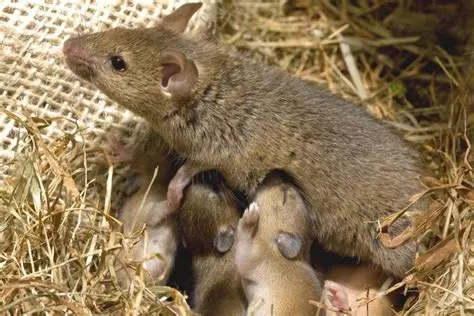There seems to be no area of the body where the microbiome, a catch-all term that addresses the different systems of microorganisms living on and inside us, doesn’t deeply affect the function and fitness therein.
Research into the human microbiome has shown that the interplay between our cells and the bacteria, viruses, and other microbes they share our tissues with profoundly influences everything from sleep and gastrointestinal function to cognition and reproductive health.
Case-in-point is a new study published in Nature which investigated whether disruption of the gut microbiome in men affects the germline and the health of the offspring produced therefrom.
In it scientists discovered a key interface between the paternal preconception environment and intergenerational health in mice.
“Perturbations to the gut microbiota of prospective fathers increase the probability of their offspring presenting with low birth weight, severe growth restriction, and premature mortality,” the authors of the study wrote.
Furthermore, the scientists found that restoring the natural symbiosis of the gut microbiota in the same male mice reversed this disease transmission risk, indicating cause and effect.
While paternal DNA is transmitted through sperm regardless of the fitness of the father, epigenetic data, or alterations in gene expression developed through exposure to various environmental factors, is also transmitted through sperm, which can include cases wherein a dysbiosis of the gut microbiota has altered a father’s epigenetics.
For their study, the scientists fed male mice with a normal chow diet laced with non-absorbable antibiotics until the mice showed a marked diversity in gut microbiota species richness and diversity. These mice were then bred with untreated female mice, and their offspring were examined for the effects. They identified a significantly lower neonatal birth weight in pups fathered by the drugged mice than the control group, and a significantly increased odds-ratio of severe growth restriction and postnatal mortality as the pups aged.
The researchers examined the testes of the mice fathers in order to propose a ‘gut-germine axis’ to add to the gut-skin access, the gut-brain axis, the gut-immune axis, and the gut-liver axis—all expanding fields of microbiome research. Along with physical changes, including smaller testes and seminiferous tubules, the researchers identified a significantly altered testicular environment in the treated mice that included certain metabolic signaling pathways that had been disrupted, and disrupted hormonal function.
WaL has reported previously that the gut microbiome also contributes to social dominance, can better predict mortality risk than our own genes, that disruption of the microbiome can lead to binge eating, and that a transplant of the microbiota from a young mouse can reverse the biological age of an elderly mouse. WaL
PICTURED ABOVE: A litter of house mouse pups.



